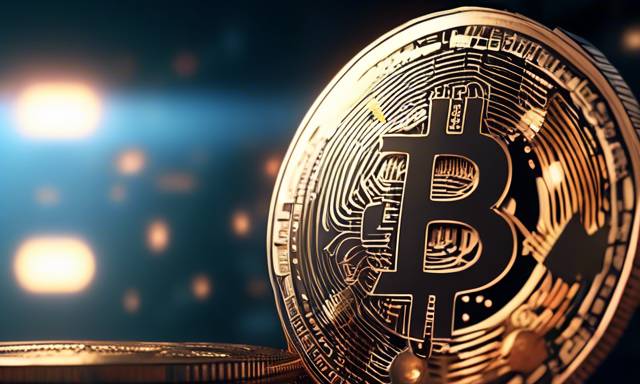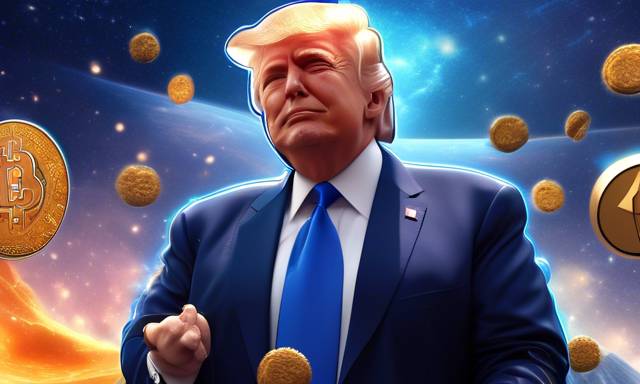Exploring the New Legislative Landscape for NFTs 🚀
This year marks a pivotal moment for the NFT sector as Congressman Timmons introduces the New Frontiers in Technology (NFT) Act. This legislation, buoyed by the Digital Chamber, aims to redefine the regulatory framework surrounding non-fungible tokens in the United States. As the industry grapples with numerous legal hurdles, this Act could provide the much-needed clarity to help NFT creators, investors, and collectors navigate these challenging waters. Let’s delve into the key aspects of the NFT Act and its implications for you.
Digital Chamber’s Endorsement of the NFT Act 🤝
The Digital Chamber has swiftly expressed its endorsement for Congressman Timmons’ NFT Act. The primary motivation behind this support lies in the potential of the legislation to classify NFTs as consumer goods rather than as financial instruments. In recent developments, the SEC issued a Wells notice to OpenSea, one of the largest NFT platforms. This raised concerns that NFTs might be recognized as securities, which could subject the industry to stricter regulations and increased risks.
The proposed NFT Act stands to provide crucial legal protection for digital artworks, collectibles, and tokenized physical assets. Coincidentally, the UK government is also considering a similar initiative to categorize digital assets as personal property. Such legislative efforts highlight a significant shift in how NFT-related assets may be perceived legally.
Navigating the Legal Challenges Facing NFTs ⚖️
The NFT space has faced turbulent times recently, with platforms like Dapper Labs and DraftKings receiving notices and lawsuits from the SEC. However, not all members within the SEC concur with this stringent approach. Notable commissioners like Peirce and Uyeda have argued against automatically labeling Crypto Collectibles as securities solely based on their resale value. The NFT Act aims to alleviate such concerns by shielding creators and consumers from unwarranted legal repercussions.
Additionally, the NFT Act mandates a comprehensive study by the Comptroller General, intended to enhance understanding of this rapidly evolving market. Such research may lead to better-informed regulatory decisions in the future.
The SEC’s Dilemma in the Crypto Realm 🏛️
SEC Chair Gary Gensler’s rigorous stance on cryptocurrency and NFTs has not gone unnoticed. Perianne Boring, founder of the Digital Chamber, has publicly criticized Gensler, claiming that his aggressive tactics have regressed the industry by a decade. This sentiment resonates among various stakeholders in the digital asset sphere, with some speculating if Gensler’s position could be jeopardized due to rising tensions.
An unusual occurrence looms on the horizon: all five SEC commissioners are set to testify before the House Financial Services Committee—a situation not witnessed since 2019. Speculation suggests that this evaluation may foster discussions on the contentious topic of whether cryptocurrencies should be classified as securities, potentially triggering major shifts within the broader crypto landscape.
Prospective Developments for the NFT Space 🔮
As the NFT Act gains momentum and the Digital Chamber rallies against what they perceive as unjust regulation, potential improvements for the NFT sector appear promising. Should this Act secure passage into law, it could foster an environment conducive to industry growth, minimizing the persistent anxiety over legal challenges. This advancement signifies a crucial step toward establishing a stable and robust future for the NFT ecosystem.
Hot Take: A New Era for NFTs? 💡
As legislative measures like the NFT Act take shape, the future looks increasingly optimistic for the NFT community. With strong support from organizations like the Digital Chamber and ongoing discussions about the regulatory landscape, it feels like the NFT sector is on the verge of receiving the recognition and clarity it deserves. This year may very well herald a new era for NFTs, one that promises both growth and stability in a previously tumultuous environment.
For further insights, consider exploring the evolving regulatory framework surrounding cryptocurrency in other regions.





 By
By
 By
By

 By
By
